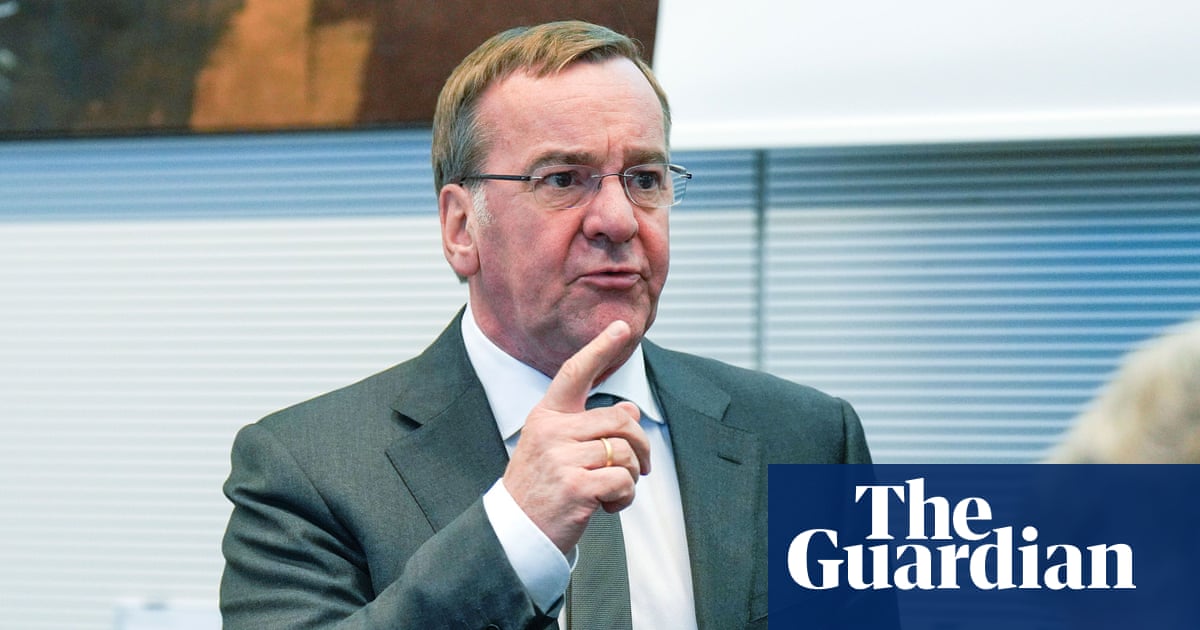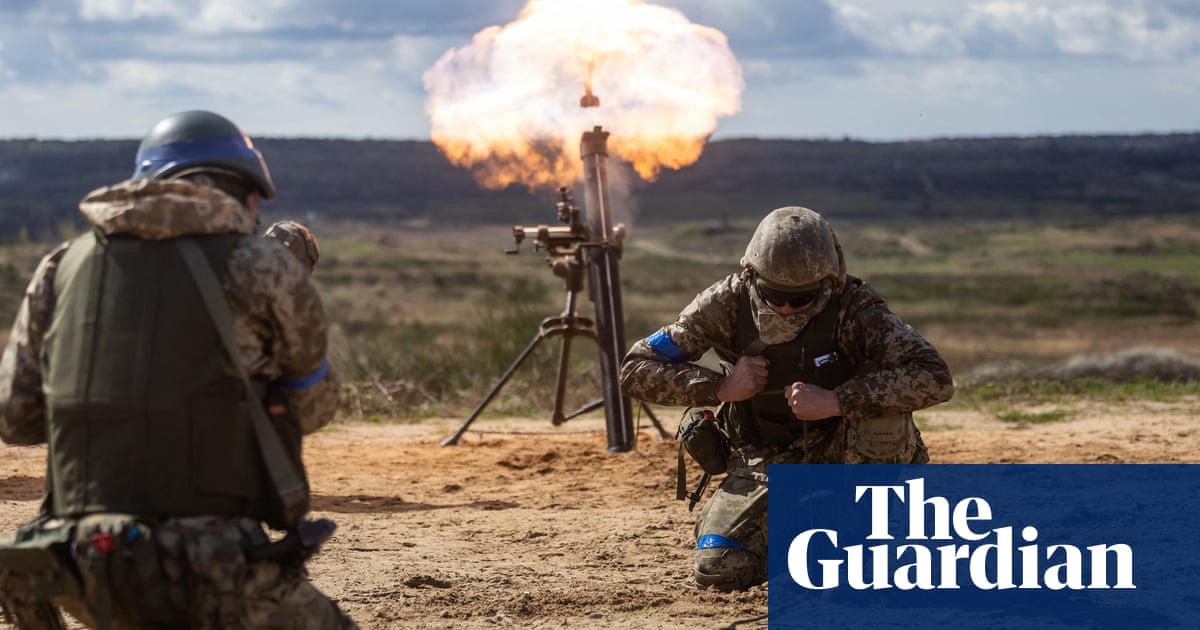
Germany’s defence minister has called for a “serious national debate” about the future of the country’s military, arguing that in its current state it is not fit to tackle the array of security policy challenges facing Europe.
Boris Pistorius, who has frequently called for Germany to become “war ready” since becoming defence minister a year ago and has warned that Vladimir Putin could attack within eight years, said the country needed to be ready to confront the Russian president.
Speaking to trainee soldiers at the German military academy in Hamburg, and making clear he was also addressing wider society, Pistorius said: “Are we seriously ready to defend this country? And who is this ‘we’? This debate has to be had.”
Pistorius said the peace and freedom that most of Europe had enjoyed for decades was “no longer an irrefutable certainty” and that Germany was being “more strongly and actively challenged than ever as an active participant in security and policy”.
This week Pistorius said he was considering allowing residents without German citizenship to join the military in an effort to raise troop numbers from 181,000 to 203,000 by 2031.
There is talk that as in the US military, where people can hope to gain citizenship in return for service, participants would be rewarded with a passport.
The army has a chronic workforce shortage, with 20,000 new recruits needed every year to maintain current numbers. A job in the military does not have the kudos in Germany that it does elsewhere, owing to the country’s wartime past.
Capitals around the continent are debating whether their militaries are fit for modern warfare and the threats posed by countries such as Russia.
On Wednesday, Britain’s military chief of staff, Gen Patrick Sanders, said steps should be taken to place society on a war footing and that the public should be prepared to take up arms against Russia. The UK defence ministry quickly dismissed his comments, insisting there would be no return to conscription, which Britain abolished in 1960.
In Sweden, Norway, Finland and the Baltic nations, preparations are already well under way to deal with a potential Russian attack.
In Germany, Russia’s war in Ukraine has brought the debate about its military out into the open.
Lt Gen Alexander Sollfrank, the head of Nato troops in the southern German city of Ulm, who would be responsible for coordinating the movements of European troops in the event of an attack on a Nato member, said the German military needed not only resources but also “the visible resolve to deploy them”.
“Credible deterrence requires preparation for war and needs to include the population,” Sollfrank said in an annual state of security speech on Wednesday.
Markus Söder, the leader of Bavaria and head of the conservative Christian Social Union, said on Wednesday that Germany was in need of “soldiers capable of fighting on the front”.
Immediately after Russia’s full-scale invasion of Ukraine in February 2022, the German chancellor, Olaf Scholz, announced a Zeitenwende (turning point) in Germany’s military commitment, dedicating €100bn (£85bn) to a special fund to finance its upgrade and recruit more personnel.
However, the change has been slow. Pistorius, who took over from a beleaguered predecessor considered unfit for the job, and who is seen as Germany’s favourite politician, has struggled to persuade government colleagues to share his sense of urgency, and has been depicted as a lone voice in the wilderness of defence politics.
In the short term, Pistorius said on Thursday he was not aware of a swap offer that would see German Taurus cruise missiles going to Britain and Ukraine receiving British Storm Shadow systems in turn. Britain has offered Germany a swap of cruise missiles that could allow the German government a way of overcoming concerns over a suggested delivery of missiles to Ukraine, the Handelsblatt newspaper reported on Wednesday.
More generally, a wake-up call may be coming in the shape of the US election. There is a growing awareness in Berlin of the impact that a Donald Trump victory could have on Nato funding and Europe’s military strategy towards Russia.
Picking up on the theme this week, Söder said: “Should Trump win, we’ll have to dress up warm. We need a fully equipped military. We are in massive need of our own drones, and we need clarification on whether the American atomic shield will remain in place.”
Söder said he would be in favour of reintroducing conscription but making it obligatory only for men, as was previously the case.
Karl-Theodor zu Guttenberg, who held the post of defence minister under Angela Merkel and on whose watch in 2011 Germany did away with the decades-long policy of national service, waded into the debate on Thursday, saying it was Germany’s “damned duty” to prepare for a Russian attack.









